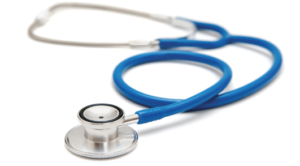Medical doctors to be trained in communication
 Dr Ebenezer Badoe, a Neuro Paediatrician at the Korle Bu Teaching Hospital, says medical students will have communication training as part of their curriculum.
Dr Ebenezer Badoe, a Neuro Paediatrician at the Korle Bu Teaching Hospital, says medical students will have communication training as part of their curriculum.
“Those already in practice will also be required to attend periodic seminars on communication to enhance their communication skills,” he said.
Dr Badoe said this in an interview with the GNA on the sidelines of a forum to disseminate the findings of a two-year research that sought to evaluate the impact of a community-based parent training programme for children with cerebral palsy in Ghana.
He acknowledged the absence of a proper communication strategy between health professionals in general and parents of children with cerebral palsy and said there was a programme in place to train especially medical doctors in that regard.
Dr Badoe said: “We are working to train all medical doctors in communication, if you are a good doctor and cannot communicate properly with your client then you are not that good.”
The research is a partnership between the International Centre for Evidence in Disability (ICED) at the London School of Hygiene and Tropical Medicine in collaboration with CBM, the School of Biomedical and Allied Health Sciences, College of Health Sciences, the University of Ghana and the Health Directorate of the Presbyterian Church of Ghana.
Cerebral Palsy is a non-progressive neurological disorder caused by brain injury or malformation while the child’s brain is developing. It affects body movement, muscle control, muscle coordination, and sometimes the speech of the child.
A draft report of the research said that an overall level of diagnosis of cerebral palsy were very poor. 49 per cent of cases care givers claimed they had never received a diagnosis from the hospital.
Ms Emelia Gyenkel, Mother of a nine year- old with cerebral palsy, sharing her experiences with the Special Mothers Group, an association of mothers with children who have cerebral palsy, said: “I went through hell to get a poor diagnosis of my child’s condition.”
She said after several attempt to know what was wrong with my child, a medical doctor in one country’s big hospital said to me: “Your child’s brain is damaged.”
Ms Gyenkel said: “I wept, screaming loudly at the doctor, is that how you have to talk to me? Is that the best way to break news to me?”
She called on doctors to learn to communicate frankly with parents, saying some parents actually read about their children condition before coming to the hospital and there was the need for them to engage parents in an efficient way.
Source: GNA
